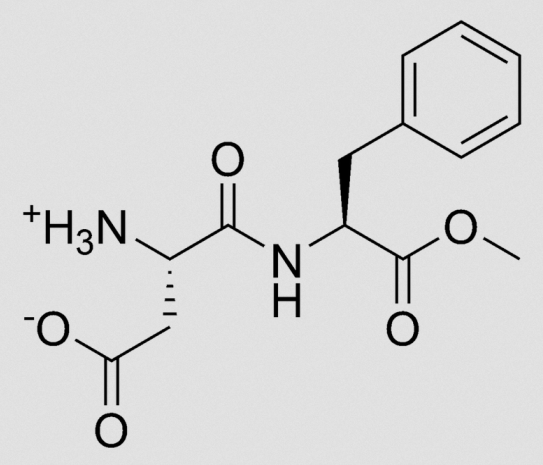By Melissa Spady (Contributor) – Email
Print Edition: May 8, 2013
I’ve never really been a fan of diet soda. The funny aftertaste was enough for me to steer clear. Ergo my interest in artificial sweeteners has been scant at best. My introduction to the world of artificial sweeteners came when I finally asked my boyfriend why he chose diet over regular soda. He told me his dad was diagnosed with diabetes a few years ago and since then he’d made the conscious decision to cut back on his sugar. In my ignorance I assumed that was logical decision to make, as most people would, but I still had to ask the question: what exactly is aspartame?
According to the Health Canada website, aspartame “is made by the bonding together of the amino acids aspartic acid and phenylalanine, which are normal constituents of proteins, to form a dipeptide which is further esterified with methanol.” A lot of those words are big and science-y, and I’m not entirely sure if that answered my question or just created more. Built right into the explanation is an argument for it’s safety: normal constituents of proteins. Does that make it safe though?
Like many other controversial food additives, it’s difficult to find consistent and conclusive evidence about the safety of ingesting aspartame. Although it’s been around for over 30 years, there is still a lot of back and forth on whether or not it’s actually safe to consume. The articles online are downright contradictory. If one travels to government-funded websites or aspartame.org the argument appears to be air tight, and makes a point of putting down those who still oppose its use. Any health concern brought up has been allegedly debunked through studies on both lab rats and human subjects where no adverse symptoms where reported. The fact that over 90 different countries have tested aspartame and approved it safe for human consumption appears to be a fairly substantial indication for many people to continue purchasing diet products.
However if you mosey on over to independent health websites, they claim that there’s a lot more to what they call “aspartame poisoning” than testing a small group of the population. SweetPoison.com is quoted as saying, “the multitude of aspartame side effects are indicative to your genetic individuality and physical weaknesses,” meaning that aspartame supposedly affects each of us differently. They cite a large list of symptoms, so many in fact that they have to break it up by body part. A few include blindness in one or both eyes, tinnitus (a ringing in the ear), headaches and migraines, depression, nausea, weight loss and weight gain. Dr. Andrew Weil also asserts on his website that “no evidence exists to suggest that using artificial sweeteners helps anyone lose weight.” Some doctors state that aspartame fools your pancreas into over producing insulin, which causes more glucose than necessary to be removed from the blood. This will actually create clinical diabetes symptoms and hypoglycemia, or low blood sugar. Some sources go as far to claim that studies where no safety issues with aspartame were found were actually funded by the aspartame industry, whereas over 90 per cent of the independently-funded ones found some health problem with it.
There are a staggering number of websites that suggest you should remove aspartame from your diet immediately, citing it as a “deadly killer,” but the fact remains that it’s still approved by our governments and is found all over the place. Common foods with aspartame include soft drinks (as well as iced tea), chewing gum, diet and diabetic foods, jams, vitamins, over the counter drugs, prescriptions and more.
I, like many of you, am a health-concerned individual. My personal health is my top priority, and I don’t like to throw the dice when it comes to something so important to me. Therefore I will be actively avoiding aspartame, but I can’t make that decision for anyone else. Educate yourselves on what you’re ingesting by reading labels and googling ingredients, then choose what’s right for your body.


